Amazing places to visit when teaching English in Morocco
Ranging from the Mediterranean Sea to the Atlantic Ocean, the snow-capped Atlas to the dusty Sahara Desert, Morocco is a vast and wonderful place. These days, TEFL-qualified folk can consider teaching English in Morocco if they’re looking to go off the beaten track. The journey will open up all sorts of awesome spots and places. There are buzzy medinas and kasbahs, the old palaces of sultans, wild hiking, and surf breaks galore. And that’s just the beginning!
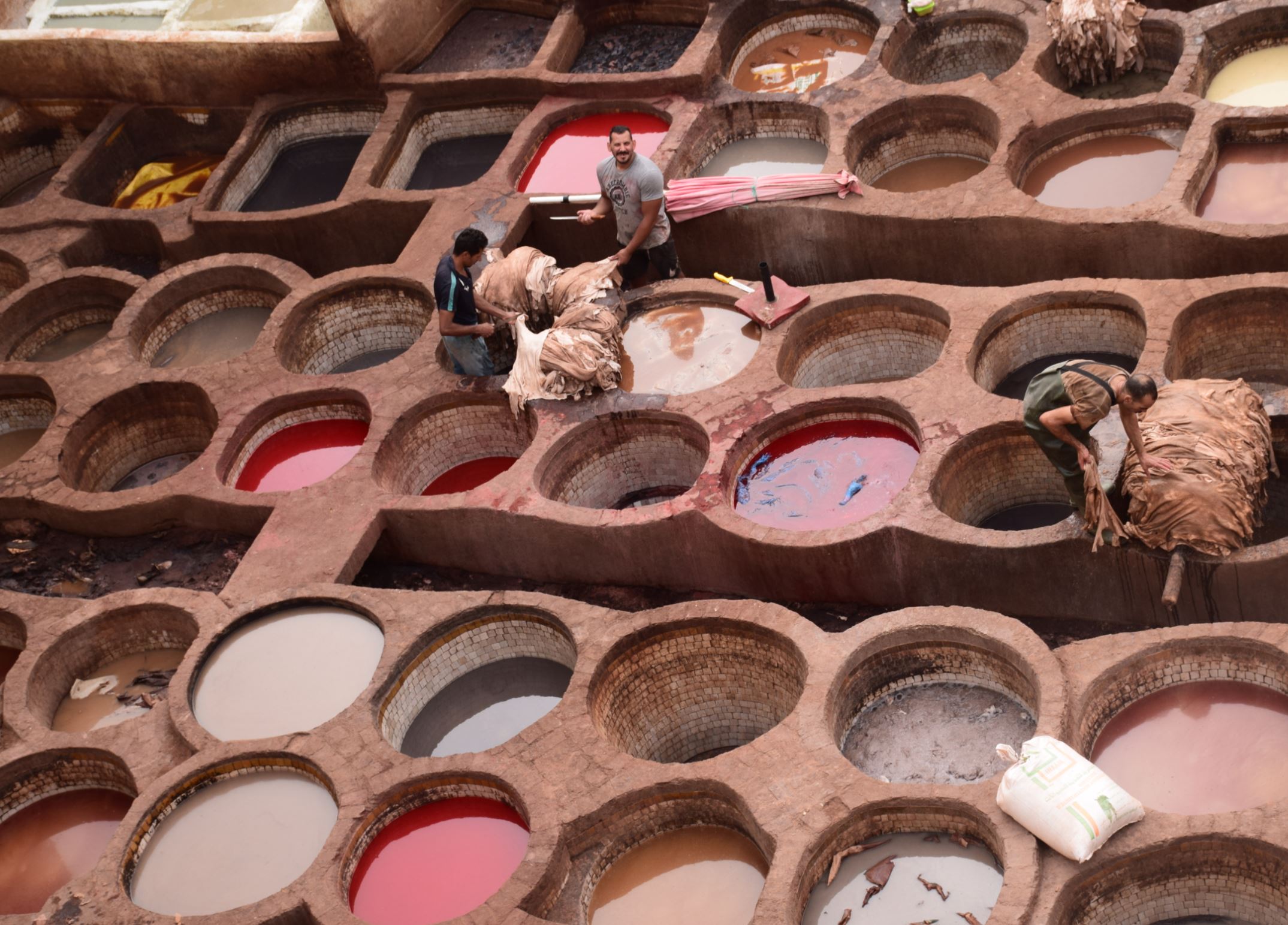
Fez
Don’t come to Fez thinking you’ll be able to navigate it! Only the locals really know their way around this maze of a city. Its historic medina (old town) is among the most higgledy-piggledy neighborhoods on earth. Alleys shoot off in one direction, arches beckon in another; small squares that clang with copper workers unfold around this corner; donkeys traipse through camel butchers and spice sellers nearby. Try to plot a route to the iconic Fez tanneries to see people making leather the same way they have for centuries. Oh, and don’t miss a stay at a traditional riad hotel – they’re a welcome dash of calm away from the medina.
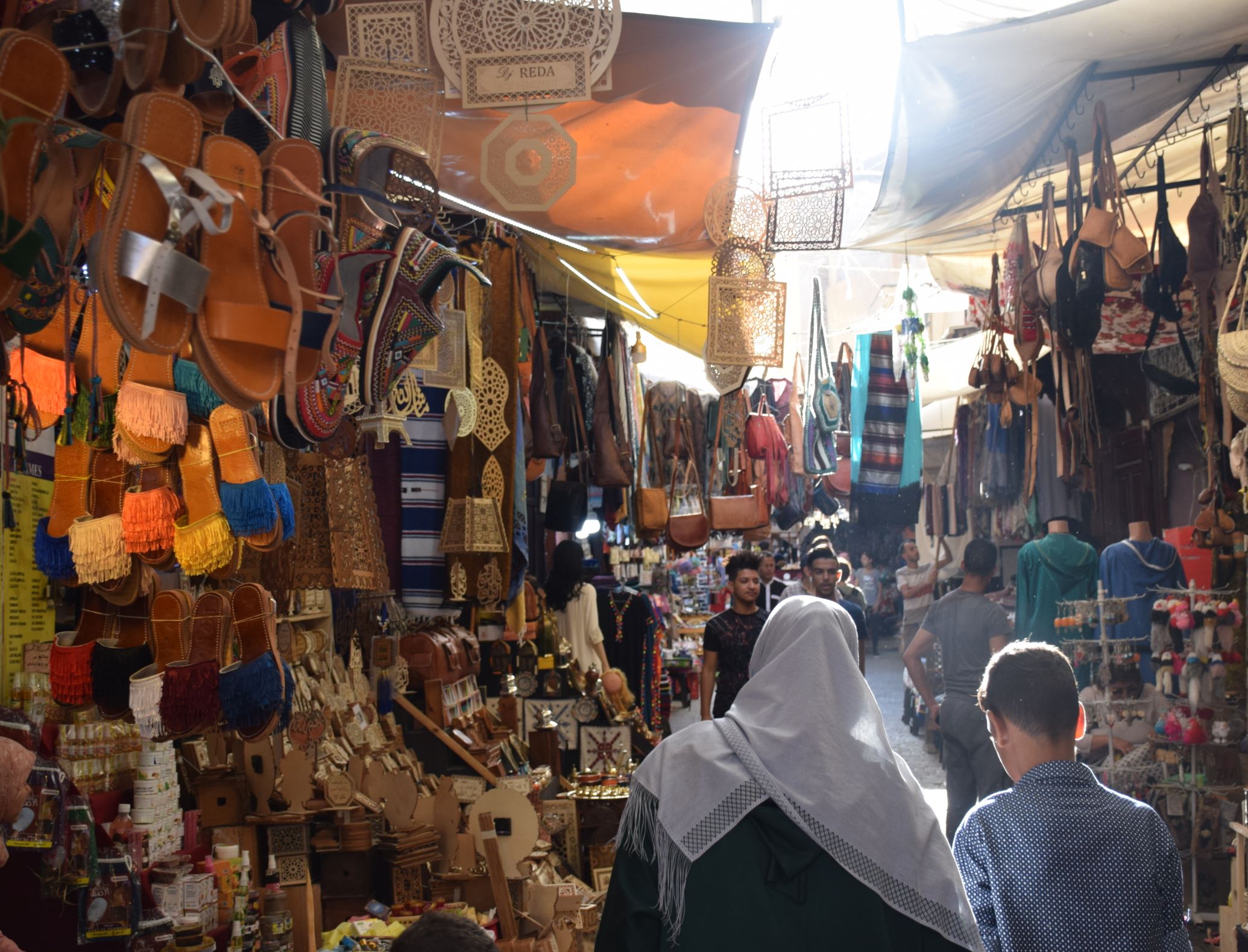
Marrakesh
Marrakesh is a bucket-list city, no questions. The scents of honey and jasmine and incense meld and mingle between the narrow lanes of its famous medina, creating a heady haze that can easily overload the senses. But that’s part of the fun, as you hop from teapot emporium to candlemaker to cobblers and back again, haggling as you go. The center of Marrakesh is the vibrant plaza of Jemaa el-Fnaa. Go there in the evening to watch circus acts and snake charmers do their thing. Those looking for some peace and quiet while teaching English in Morocco might prefer the manicured gardens of Majorelle, where cacti and French-styled architecture abound.
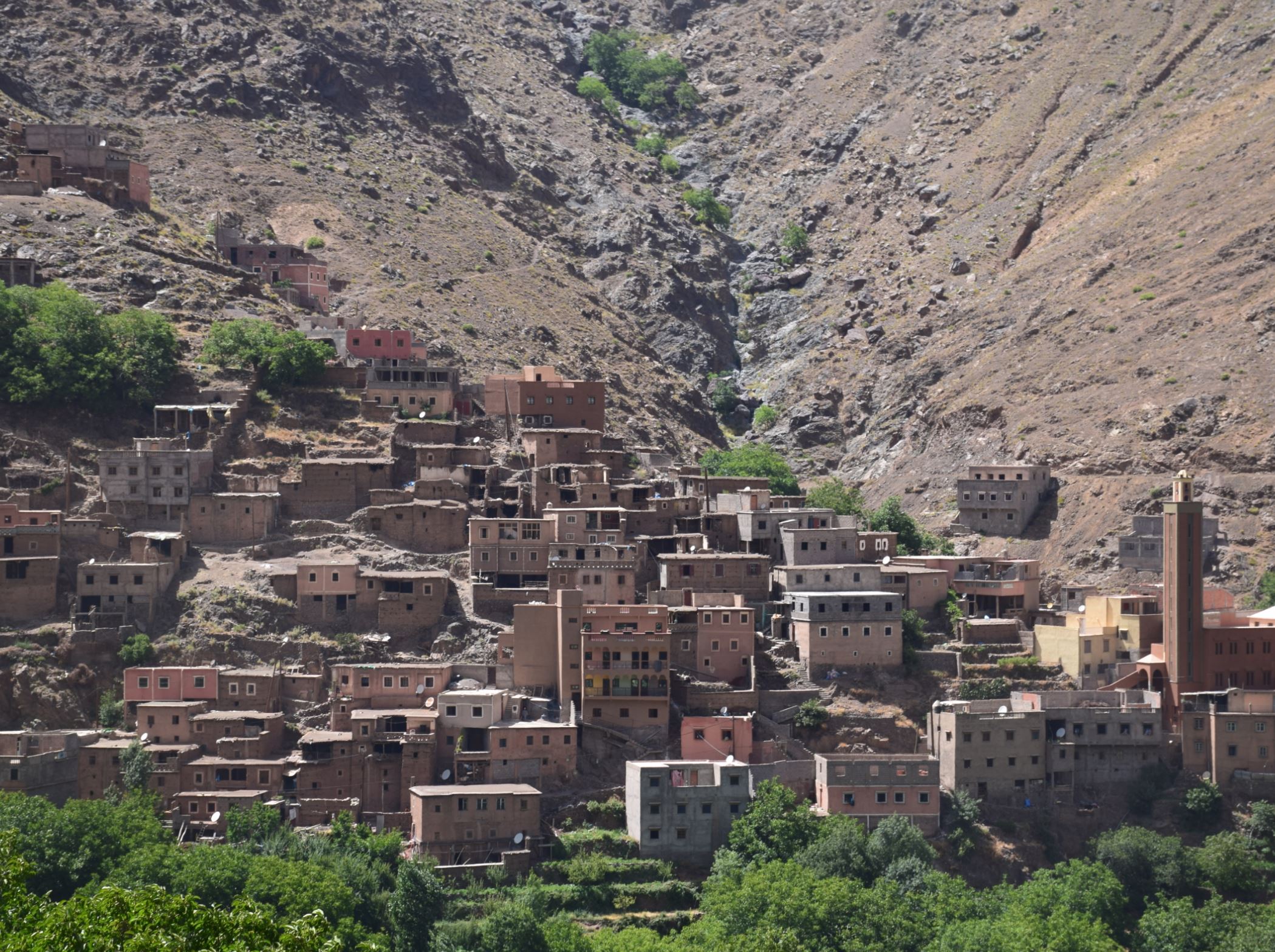
Imlil
Imlil sits in the shadow of mighty Jebel Toubkal – the highest mountain in all of North Africa. As that summit pierces high into the cloudless skies on one side of the town, little oases of oak and chestnut trees rise to the other. They’re folded into the valleys of the Atlas, which are the main reason you’ll want to take a break from teaching English in Morocco to come here. Age-old donkey trails and trekking paths spread out for miles around Imlil. They go to the tops of craggy mountains and reveal blustery passes where goat herders wait with fresh-pressed orange juices. A great way to explore the region is with a guide, who can help you put together 10-day rambles that go from Berber village to Berber village through the peaks.
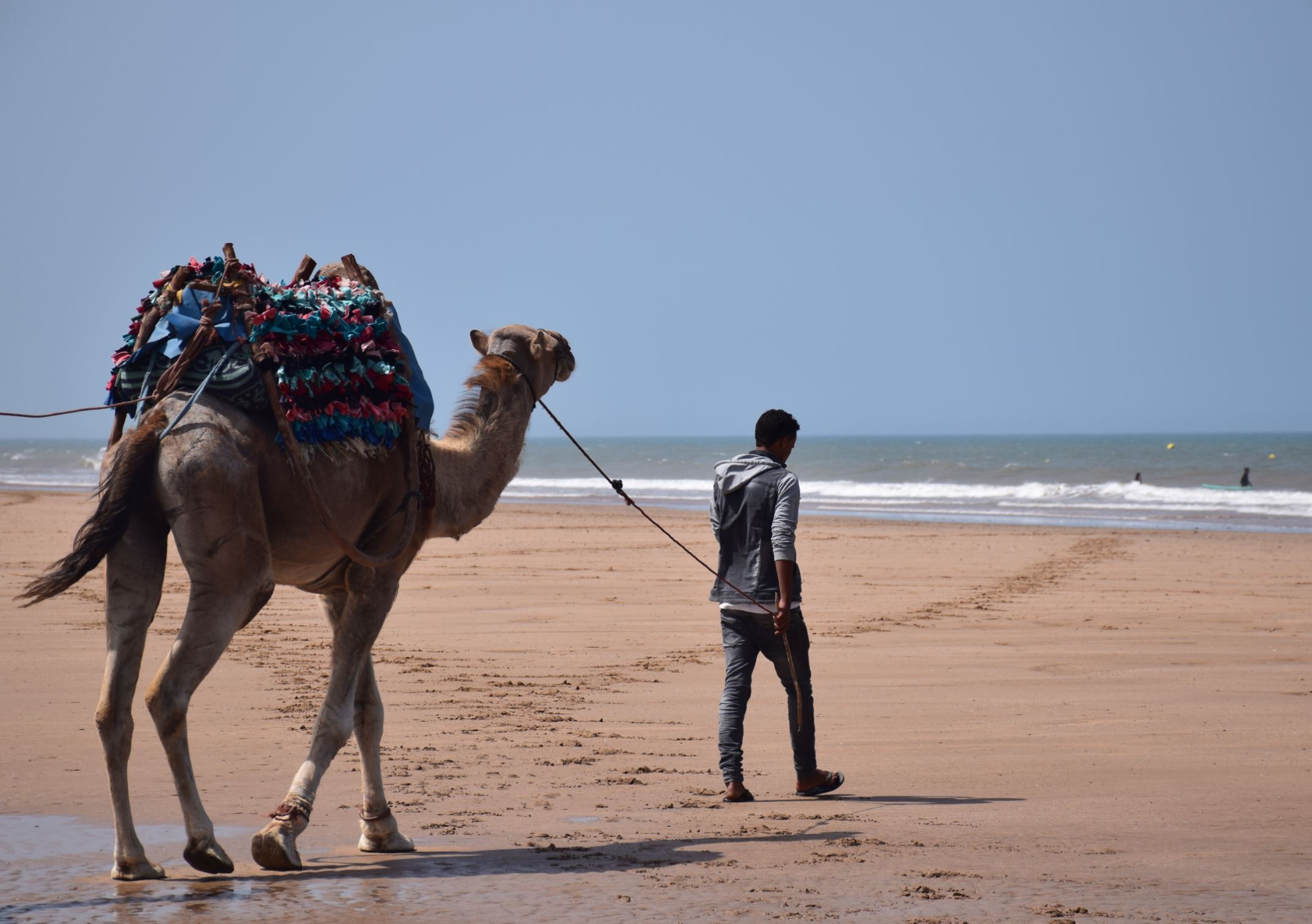
Sidi Kaouki
Marked by the paint-peeling tomb of an old Sufi saint just a short taxi ride south of Essaouira (more on that later), Sidi Kaouki is a charming little stop off that’s away from the crowds and the buzz of the rest of Morocco. It’s really only on the map because of its waves. This is an up-coming surf destination to rival the overpopulated breaks of Taghazout further down the coast. And while it’s easy to rock up to one of the local rentals and try your hand on the beach rollers, you can also come here to chill, eat, beachcomb and meet camel caravans on the sand!
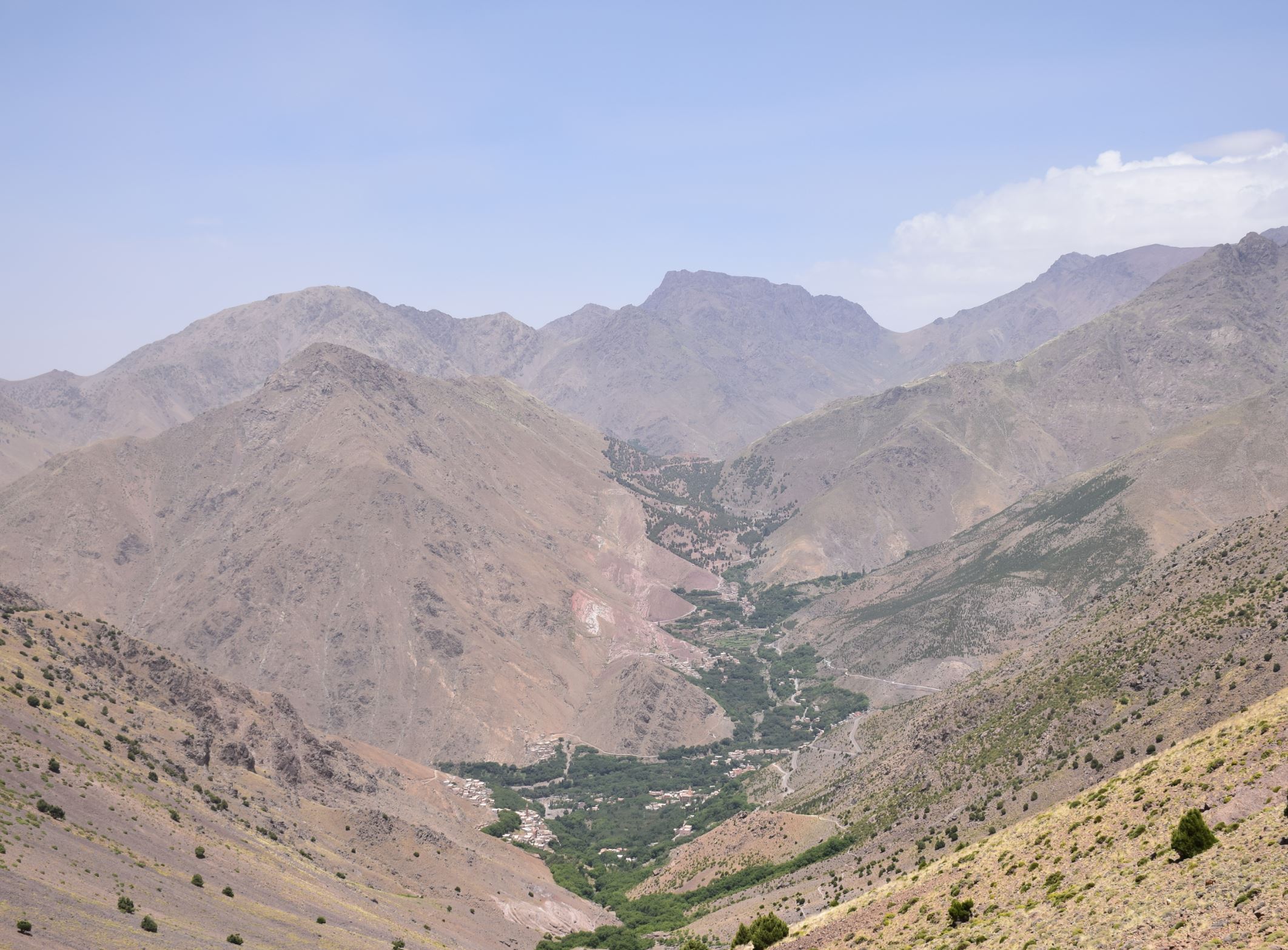
Oukaïmeden
If you’re teaching English in Morocco and want a break from the heat of the city, there’s probably nowhere better to go than Oukaïmeden. It’s spread over a high plateau in the midst of the Atlas Mountains, some 45 miles south of Marrakesh, and – most importantly – more than 2,600 meters above sea level! The altitude means the mercury stays low in Oukaïmeden for most of the year. However, the crowds will really start to come in the winter, when snow douses the slopes, giving rise to one of the few ski resorts to exist in Africa. Yep – head here and you could be whizzing down marked pistes while gazing at the dusty orchards of the Maghreb to the north!
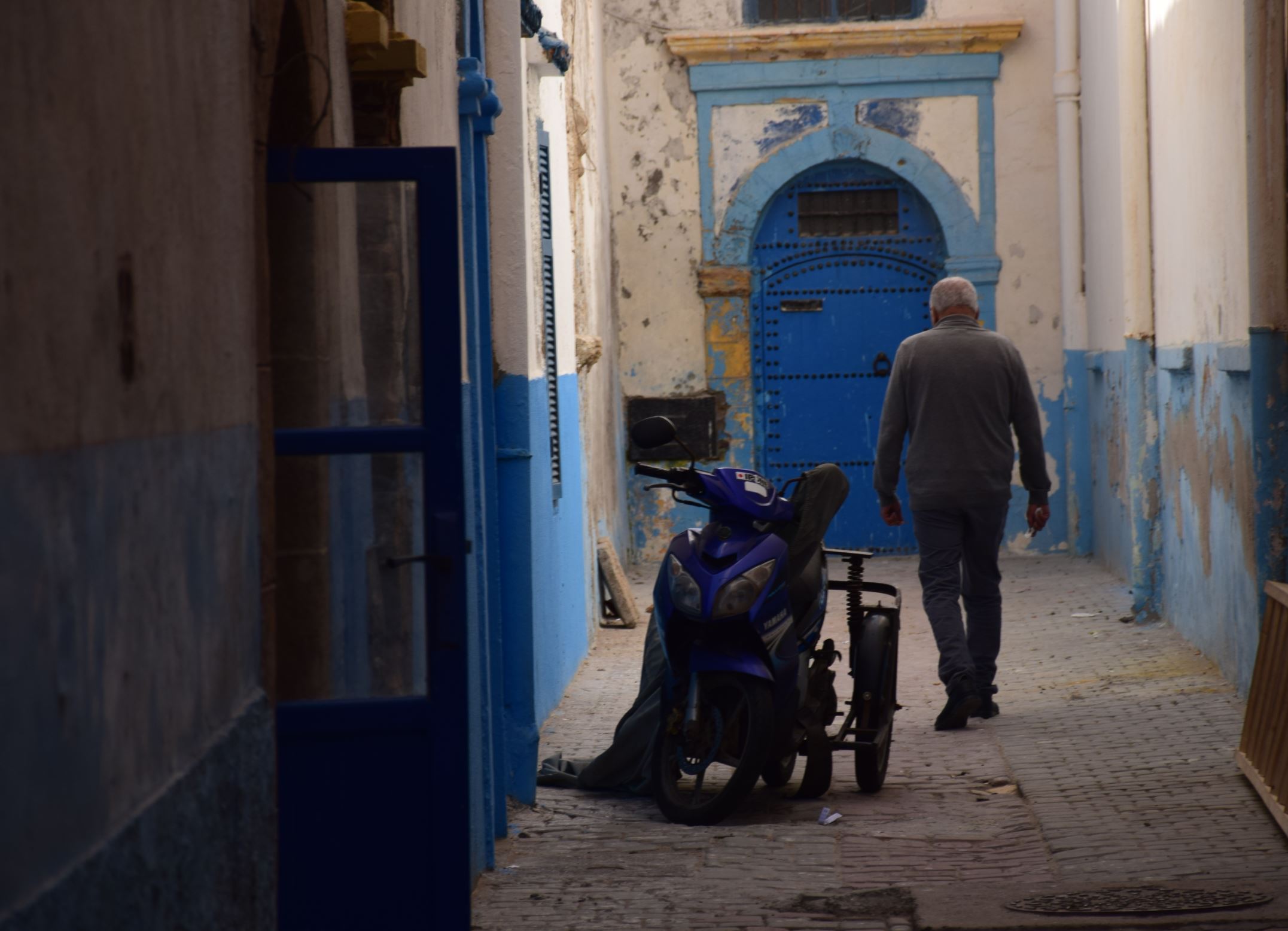
Essaouira
Welcome to the city of wind. This pretty little fortified town clutches the very western edge of Morocco. It meets the Atlantic where the ocean currents are strong, and the shoreline all cracked with mud and dunes. Come the summer, it’s washed over by a powerful breeze known locally as the alizee. The southern side of the old town is a long arc of golden sand that’s washed by light waves – a kite surfer’s mecca. The medina itself is where the action is at, though. Unlike any other old town in the country, it’s tinted pastel white and Greek blue. The streets are wide and uniform, filled with hawkers of argan oil and leather wear (the regional specialties).
Of course, there are oodles more places to add to the itinerary when you’re teaching English in Morocco. If you’ve been lucky enough to work in this fascinating North African country, we’d love to hear your suggestions below. Alternatively, if you think it’s time you got qualified and applying for jobs in the land of deserts, couscous and camels, you can check out our courses page for more information…
